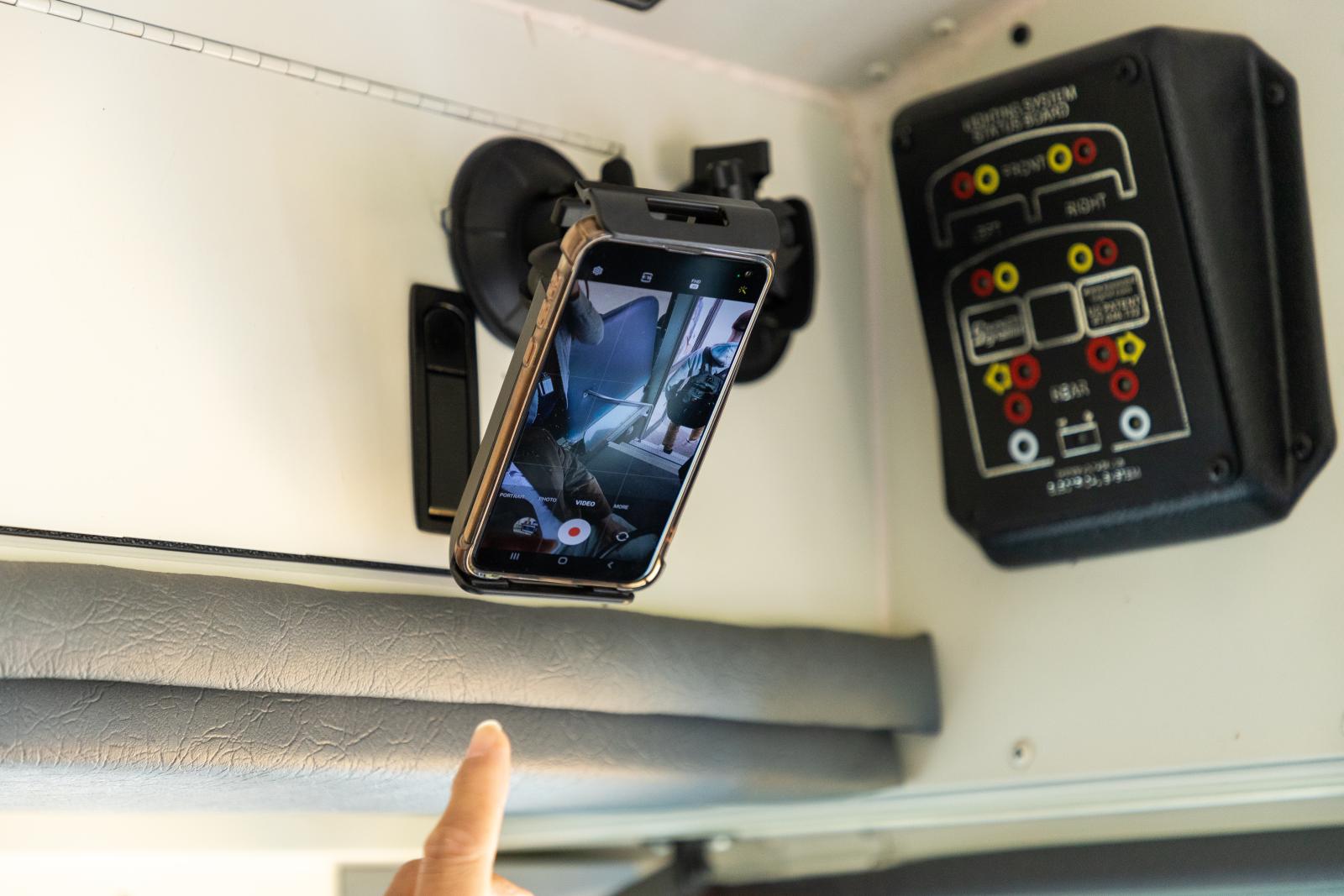
Kettering Partners with Navistar to Make Buses Safer

Kettering University students are working on ways to make school buses safer.
The team is in the fourth year of a five-year project with Navistar, an Illinois-based manufacturer of school buses and semi trucks. This year, the Kettering team is developing the automation of vehicle sensing behavior capabilities to classify human transient behavior to detect when a child and/or an article of a child’s clothing is pinched in the bus door, to automate passenger counting, and to detect bullying and other dangerous passenger situations.
Students are using artificial intelligence, algorithms, and models to develop a low-cost platform to take photos of the children and keep a count to report to the driver, ensuring the drivers don’t leave students on the bus when they park and leave the garage for the day. Other artificial intelligence-based software will detect if a child and/or their backpack or clothing is in the danger zone of getting pinched in the door.

So far, Navistar is pleased with the students’ work.
“This is thinking outside of the box,” said Dr. Teik-Khoon Tan, Navistar Senior Technical Specialist. “We need innovation, so our strategy is to partner with universities. Without it, we lack other innovative perspectives. Kettering students, the learning and growth are very high. I’m very impressed.”
He praised Electrical and Computer Engineering Professor Dr. Mehrdad Zadeh for his “high emotional quotient” or ability to understand others’ emotions.
“[Zadeh] listens, and [the students] can learn what our customer really needs,” Tan said. “Listen to what our pain points are so we can be in a good marriage. This is a perfect marriage. I’m very glad.”
In the first three years of the partnership, students worked on autonomous sensors and video, segmentation and behavioral learning.
“All of this is part of artificial intelligence, and now we’re getting into behavioral learning when you step into the bus. They will know who you are, when you’re bullying kids,” Tan said, noting the system will know this behavior is inappropriate.
Instead of using computers, the team uses recycled cell phones to capture the data, which is a cost-efficient way to provide customers with the safety applications they need.
“This is important for production because we don’t have to redevelop everything off the shelf,” Tan said.
He and Noah Wilson, advanced technology engineer at Navistar, have been working with the team.
“The students are very bright and clearly hardworking,” Wilson said. “Pretty much all of the work has been done by the students. We’ve been in more of an advisory role.”
Amanuel Weldemichael ‘23 has been working on the automatic passenger counter portion of the project.
“I am interested in [Advanced Driver Assistance Systems] ADAS and autonomous vehicle solutions,” he said.
His biggest challenge has been using well-known models on edge devices for real-time applications.

“All of this is part of artificial intelligence, and now we’re getting into behavioral learning when you step into the bus. They will know who you are, when you’re bullying kids,” Tan said, noting the system will know this behavior is inappropriate.
- Dr. Teik-Khoon Tan











